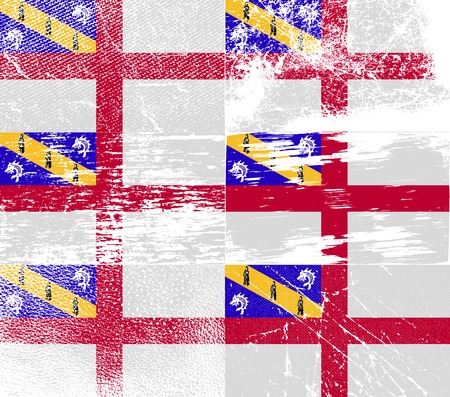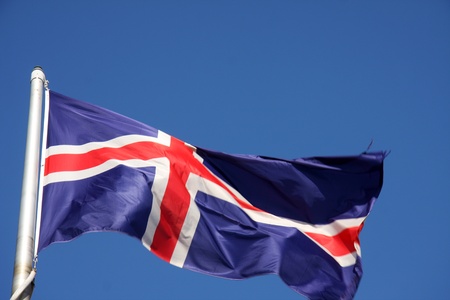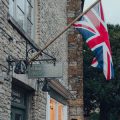Introduction to Numerology in Britain
Numerology, the mystical study of numbers and their influence on human life, has woven itself into the cultural fabric of Britain over centuries. While its roots can be traced back to ancient civilisations, numerology found a distinctive presence across the British Isles, adapting through historical shifts and local traditions. In Britain, numerology is not just a fringe belief but has periodically surfaced in mainstream consciousness—whether in media, folklore, or even decision-making practices. This widespread yet varied engagement with numerological ideas provides a foundation for exploring how each region—England, Scotland, Wales, and Northern Ireland—interprets and applies these concepts differently. By establishing this baseline understanding of numerology’s evolution within British society, we set the stage to examine the nuanced regional contrasts that have emerged due to linguistic, religious, and cultural distinctions unique to each part of the United Kingdom.
2. English Approaches: Tradition Meets Modernity
England presents a unique landscape where numerology is shaped by both deep-rooted folklore and the vibrancy of modern urban life. Historically, English numerological practices were closely tied to rural superstitions and customs, with numbers like 7 and 13 holding particular significance in tales passed down through generations. The reverence for such numbers can be traced back to medieval times, where village communities often relied on symbolic interpretations for guidance in daily affairs.
Influences from English Folklore
Traditional English beliefs have long associated specific numbers with luck, fate, or even misfortune. For instance, the number 7 was frequently seen as auspicious, linked to everything from days of the week to magical properties in fairy tales. Conversely, 13 has historically been viewed with suspicion, influencing building designs (such as omitting a thirteenth floor) and social rituals.
Table: Common Numerological Beliefs in English Folklore
| Number | Folkloric Meaning | Common Associations |
|---|---|---|
| 7 | Good fortune, completeness | Fairy tales, religious symbolism |
| 13 | Misfortune, bad luck | Superstitions, architecture |
| 3 | Harmony, magic | Weddings, storytelling patterns |
| 9 | Mystery, finality | Rituals, poetic forms |
The Urban Renaissance: Contemporary Numerology in England
In recent decades, numerology in England has experienced a revival within cosmopolitan centres such as London, Manchester, and Birmingham. Here, practitioners blend traditional elements with global influences—often drawing inspiration from American and Asian numerological systems. This new wave is marked by an increased presence of numerology in wellness culture, self-help seminars, and digital platforms where personalised readings are popular among younger generations.
Comparison of Traditional vs Modern English Numerology Practice
| Aspect | Traditional Approach | Modern Urban Trend |
|---|---|---|
| Main Influence | Folklore & superstition | Global spiritual trends & technology |
| Methodology | Sacred numbers & oral tradition | Pythagorean charts & online calculators |
| User Demographic | Elderly & rural communities | Younger, urban professionals |
| Setting | Countryside gatherings, family settings | Spa retreats, social media groups |
This coexistence of heritage and innovation illustrates how England’s approach to numerology is neither static nor monolithic. Instead, it reflects a dialogue between past and present—where ancient superstitions find new expression amidst the dynamism of contemporary British life.

3. Scottish Perspectives: Folklore and Mysticism
Scotland’s approach to numerology is deeply intertwined with its rich tapestry of folklore and mysticism, setting it apart from other regions in the United Kingdom. The Scottish tradition, shaped by centuries of Celtic influence and a rugged landscape steeped in legend, embraces numbers as more than mere tools for calculation—they are seen as conduits for spiritual insight and protection.
The Influence of Celtic Traditions
Central to Scottish numerological thought is the enduring legacy of Celtic culture. Ancient Celts attributed sacred meanings to certain numbers, such as three and seven, which recur frequently in Scottish myths, poetry, and rituals. Triadic structures—like the triple goddess or triskelion symbol—often represent harmony between earth, sea, and sky, reflecting a belief in the interconnectedness of all things. These motifs continue to inform contemporary numerological practices across Scotland.
Numerology in Scottish Folklore
Folklore remains a living part of Scottish communities, where stories of faeries, selkies, and legendary clans often hinge on significant numbers. For example, the appearance of a particular number of crows or stones may be interpreted as an omen or message from ancestral spirits. Numerology is thus woven into daily life through storytelling and traditional celebrations, reinforcing communal bonds and respect for unseen forces.
The Role of Superstition in Local Communities
Superstition continues to play a vital role in many rural and island communities throughout Scotland. Numbers are frequently invoked to ensure good fortune or ward off misfortune—avoiding the number thirteen during gatherings or considering certain dates auspicious for weddings and harvests. Even within modern urban centres like Edinburgh and Glasgow, echoes of these beliefs persist, subtly influencing local customs and attitudes towards fate.
Modern Adaptations
Today, Scottish interest in numerology extends beyond tradition, blending ancient wisdom with contemporary spiritual practices. Workshops on Celtic numerology are popular at cultural festivals, while local authors reinterpret old legends through a numerological lens. This ongoing dialogue between past and present ensures that Scotland’s unique perspective on numbers remains vibrant and relevant within British regional diversity.
4. Welsh Interpretations: Language and Spirituality
When examining how numerology is interpreted across Britain, Wales stands out for its unique interplay between the Welsh language, deep-rooted spiritual traditions, and evolving numerological beliefs. The Welsh cultural context offers a distinctive lens through which numbers acquire meaning, influenced by linguistic nuances and centuries-old spiritual heritage.
The Role of the Welsh Language in Numerology
The Welsh language, with its own system of counting and symbolic references, shapes the way numerological ideas are communicated and understood. For instance, certain numbers have specific connotations in Welsh folklore and poetry that differ from their English counterparts. The linguistic structure often places emphasis on poetic expression, which can imbue numerical interpretations with layered meanings.
| Number | Welsh Term | Cultural or Spiritual Association |
|---|---|---|
| 3 | Tri | Symbolises harmony and balance; linked to the traditional triads (Trioedd) of Welsh literature |
| 7 | Saith | Seen as mystical; appears in local legends and religious motifs |
| 9 | Naw | Associated with completion and spiritual fulfilment; echoes in bardic traditions |
Spiritual Heritage and Local Beliefs
Wales has a profound spiritual legacy, drawing from pre-Christian Celtic practices, Christian mysticism, and folk customs. This blend creates a fertile ground for numerological beliefs to flourish. The intertwining of Druidic symbolism with Christian iconography means that numbers like three (the trinity) or seven (days of creation) hold both ancient and contemporary resonance.
Modern Adaptations of Numerology in Wales
Contemporary practitioners in Wales often integrate traditional interpretations with global numerological systems but retain a distinctly Welsh perspective. There is a growing interest in aligning personal names—especially when translated into Welsh—with numerological profiles, reflecting a renewed pride in linguistic heritage.
Summary Table: Key Influences on Welsh Numerology
| Influence | Description |
|---|---|
| Linguistic Nuance | Numbers acquire meaning through poetic and idiomatic expressions unique to the Welsh language. |
| Cultural Symbolism | Certain numbers appear frequently in myths, legends, and local sayings, shaping communal beliefs. |
| Spiritual Syncretism | A fusion of ancient Druidic values with Christian teachings enhances the significance of key numbers. |
| Name Calculations | The translation of names into Welsh can alter their numerological value, reinforcing national identity. |
This intricate relationship between language, spirituality, and numerological practice gives Wales a distinct voice within the broader British landscape of numerology, highlighting how local context continues to inform personal and collective interpretations.
5. Northern Irish Contexts: Cultural and Religious Nuance
Within the context of the United Kingdom, Northern Ireland presents a distinct landscape for numerology, one that is deeply shaped by religious plurality and evolving cultural identities. Unlike other regions, the interplay between Catholic and Protestant communities has historically influenced attitudes towards mystical or esoteric practices, including numerology. This complexity arises from a legacy where spiritual traditions were often delineated along sectarian lines, with certain forms of folk belief either integrated into or excluded from mainstream religious life.
Religious Plurality and Historical Legacies
Northern Irelands dual religious heritage means that numerological interests are filtered through both Catholic and Protestant perspectives. For some, numerology may be associated with superstition or even frowned upon due to strict doctrinal interpretations. Others may blend numerological ideas with local customs, especially in rural areas where older folk practices persist. This results in a nuanced acceptance—numerology might be privately explored but rarely discussed openly within certain communities.
Cultural Identities and Modern Shifts
The late 20th and early 21st centuries have witnessed significant shifts in Northern Irish identity, moving away from rigid sectarian divides towards a more pluralistic society. With these changes, there has been a growing curiosity about alternative spiritualities, including numerology. Younger generations in particular are more likely to view numerological practices as part of a broader exploration of personal meaning, rather than as something inherently oppositional to their inherited faith traditions.
Integration with Local Traditions
Despite its discreet profile, numerology does find resonance in Northern Irish culture through local storytelling, folklore, and even literature—often coded rather than explicit. Numbers have long played symbolic roles in myths and legends unique to the region. As cultural barriers continue to evolve, there is potential for numerology to become more visible and integrated within the tapestry of Northern Irish spirituality, reflecting the ongoing negotiation between tradition and modernity.
6. Comparative Insights: Regional Similarities and Distinctions
Understanding the landscape of numerology across the United Kingdom requires a systematic breakdown of both shared patterns and region-specific features. While England, Scotland, Wales, and Northern Ireland all embrace numerological practices to varying degrees, local identity and cultural context distinctly shape how these traditions manifest.
Common Themes Across the UK
Certain underlying principles unite British numerology. Most notably, there is a widespread reliance on traditional Western numerological systems—such as Pythagorean or Chaldean methodologies—for deriving personal meaning from numbers. The use of numerology in personal milestones, such as house numbering, wedding dates, and naming conventions, is found throughout the UK. Additionally, the integration of numerology with broader esoteric interests—like astrology or tarot—reflects a pan-British tendency towards holistic spiritual exploration.
Local Identity and Divergent Practices
Despite these overarching similarities, regional distinctions are pronounced. In England, numerology tends to be secular and individualistic, often associated with self-improvement or lifestyle choices. Scottish approaches frequently blend numerology with Celtic mysticism and folklore, resulting in more ritualistic applications and community-based interpretations. Wales exhibits a unique fusion of numerology with bardic traditions and Welsh mythology, particularly in rural areas where oral storytelling remains influential. Meanwhile, Northern Ireland displays both Irish mystical influences and Protestant scepticism, leading to pockets of intense interest set against broader societal ambivalence.
Influence of Language and Folklore
The persistence of native languages—such as Welsh and Scots Gaelic—imbues local numerological practices with linguistic nuances absent elsewhere in Britain. For instance, number symbolism in Welsh poetry differs subtly from that found in English literary circles. Similarly, Scottish clans may interpret numerical patterns through ancestral legends distinct from English or Irish counterparts.
Societal Attitudes and Modern Adaptations
A cross-country comparison reveals that urban centres (like London or Edinburgh) generally approach numerology through modern frameworks—workshops, online communities, and commercial services—while rural areas retain more traditional or even superstitious attitudes. Social openness towards numerology also varies: it is largely mainstream in parts of England but can be stigmatised or hidden in conservative regions of Northern Ireland or Scotland.
Synthesis: Unity Amidst Diversity
In sum, while numerological practice in the UK shares foundational tenets, regional identity profoundly influences its expression. This interplay between commonality and divergence not only enriches Britains numerological heritage but also reinforces the importance of local culture in shaping spiritual and metaphysical beliefs.
7. Conclusion: The Future of Numerology in the UK
The landscape of numerology in the United Kingdom is a fascinating patchwork, woven from the distinct traditions and cultural influences of England, Scotland, Wales, and Northern Ireland. As we reflect on how these regional differences have shaped numerological beliefs and practices, it becomes evident that the field is far from static. Instead, numerology continues to evolve, drawing upon both historic roots and contemporary innovations.
Cross-Regional Connections
One of the most promising aspects for the future of British numerology lies in fostering connections across regions. With increased mobility and digital communication, practitioners and enthusiasts are more able than ever to share insights, methods, and interpretations. This cross-pollination allows for a blending of approaches—where English pragmatism might meet Scottish mysticism, Welsh folklore can inspire Northern Irish symbolism, and vice versa. Such interactions encourage a richer, more diverse tapestry of numerological practice throughout Britain.
Continued Adaptation
British society itself is dynamic, shaped by ongoing social, technological, and demographic changes. Numerology adapts accordingly; it is being reinterpreted through modern lenses while retaining elements unique to each nation’s cultural identity. For instance, younger generations may integrate numerology with contemporary wellness trends or digital tools, while local historians continue to anchor numerological practice within regional heritage.
Reflection on Evolution
This evolving landscape calls for both respect for tradition and openness to innovation. By recognising the value of regional variation—whether in the numerological meanings ascribed to numbers or in the rituals surrounding their interpretation—the UK can maintain a vibrant numerological community that remains relevant and responsive to societal changes.
In summary, the future of numerology across Britain looks set to be characterised by both unity and diversity: a continued celebration of local distinctions underpinned by shared curiosity and collective exploration. Through ongoing dialogue and adaptation, British numerology will not only preserve its rich heritage but also pave new paths for discovery and personal meaning.


